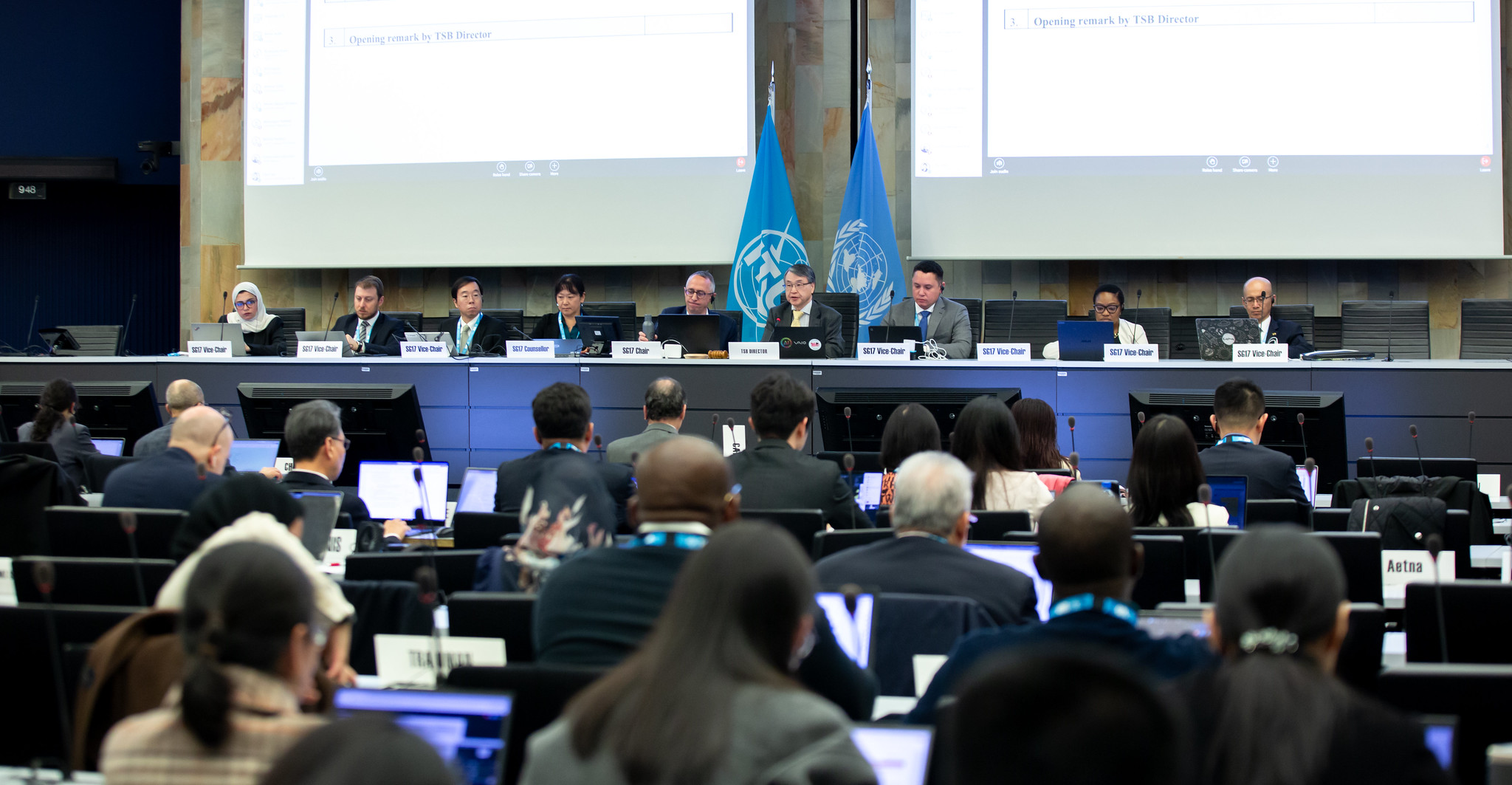A stitch in time for quantum computing
Throughout 2025, the International Telecommunications Union celebrates its 160th anniversary. Its modern digital mandate touches earth, sea and sky.
This blog about space communications is the second in a series for International Geneva examining ITU’s contribution to pressing global issues. It explores how the organization enhances Geneva as a hub for innovation, diplomacy and multilateralism and complements Switzerland’s unique role in the space industry.
Quantum. We’ve heard the term, but what do we know about it? We use “quantum leap” to describe a sudden jump that brings dramatic change. But the next quantum leap is likely to apply to quantum itself – quantum computing, in fact.
Quantum computing doesn’t work like traditional computing, which processes information in bits. Quantum information technologies, based on qubits, harness quantum mechanics principles to store and process information.
Current quantum systems operate with several hundred qubits. But major applications will require millions of qubits, along with massive infrastructure to operate them. While quantum computing is not yet stable enough for wide-scale applications, enough research is underway that the tech could evolve rapidly over the next decade.
Not for nothing is this the International Year of Quantum Science and Technology. The first quantum mechanics paper was published in 1925.
One hundred years later, public funding alone for quantum computing amounts to at least USD 40 billion among 29 countries. Private funding, though considerably less, is also well underway.
For now, quantum investments focus largely on national security interests or commercial ones. The financial, pharmaceuticals, energy, communications and automotive sectors are among the early adopters already looking at quantum potential.
Promise or peril?
Quantum computing will become what we make of it. Beyond the hype, it has enormous scope to bring hope or harm, promise or peril. The technology offers the potential, for example, to better detect and mitigate water supply leaks in urban areas. But it could also create new chemical weapons or produce devastating cyberattacks.
National strategies focus on areas such as research, education and training, secure value chains and standards. Some governments are racing to develop quantum-resistant information security systems, while other governments are struggling to understand the implications of quantum for citizens.
To mitigate risks, some countries are adopting export controls for quantum hardware and software. But go-it-alone approaches can result in competing standards, reducing interoperability and hindering collaboration for good.
The threat current cybersecurity is especially serious for government agencies and financial institutions. Yet quantum also offers new security solutions.
This is why ITU set a baseline quantum technology standard in 2019 and continues to develop security and interoperability standards, in close cooperation with other standards bodies. ITU-led work on quantum technologies involves 300 experts from 180 organizations and 43 countries.
ITU has published 40 standards on Quantum Key Distribution and set up a database to capture quantum standards from around the world.
Meanwhile, while a few countries are advancing quantum-enabled communications, billions of people around the globe are still offline. Another peril of quantum computing is the prospect of widening, rather than narrowing, the world’s persistent digital divides.
This is why ITU works with partners around the world to ensure universal and meaningful connectivity. ITU’s Digital Infrastructure Investment Initiative, co-led with seven development finance institutions, is geared to help mobilize the estimated USD 1.6 trillion needed to connect everyone meaningfully by 2030.
A timely stitch – Geneva’s multilateral cooperationGeneva is stepping up to combine the forces of quantum information technologies and international diplomacy to bridge digital divides during this International Year of Quantum Science and Technology. ITU is doing its part to encourage multilateral dialogue and action. The next AI for Good Global Summit, taking place at Palexpo on 8-11 July 2025, will feature a new track: Quantum for Good. The Quantum for Good track will identify common priorities and partnerships to address shared cross-border challenges, such as extending timely warnings for natural disasters, reducing greenhouse gas emissions, and bolstering cybersecurity. A key partner is the Open Quantum Institute hosted by the European Centre for Nuclear Research (CERN) and supported by Swiss-based bank UBS and other local partners. The new institute is the brainchild of a high-level foundation, the Geneva Science and Diplomacy Accelerator. The Open Quantum Institute encourages open collaboration among researchers and sensitizes them about global sustainable development. It also raises awareness among policymakers about the implications of quantum computing for strategic decisions and future planning. Multilateral cooperation around quantum issues is just starting. When it comes to risks, prevention now is better than surgery later. That makes now the time design safe and accessible quantum solutions for humanity’s future. |
Follow this article series signed by ITU as we explore their 160-year history, emerging priorities, and ongoing work to build the digital future for all.
